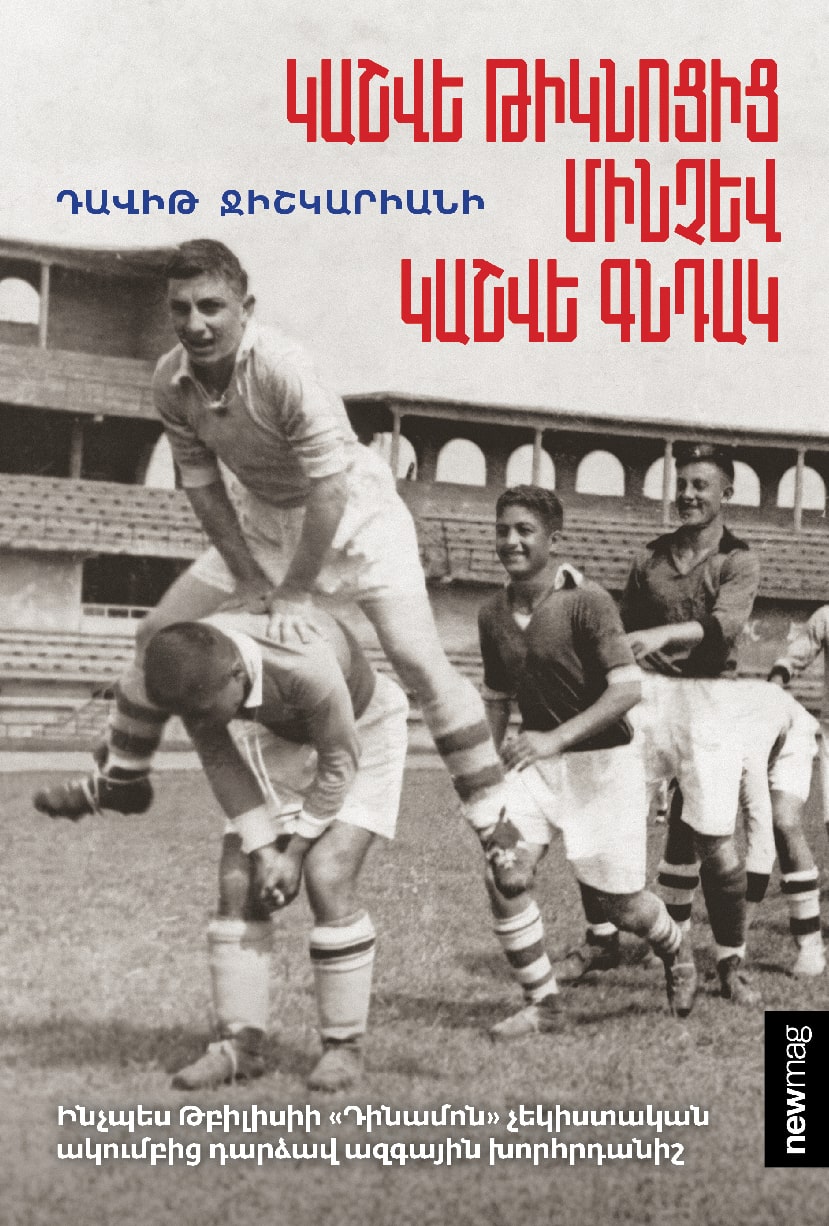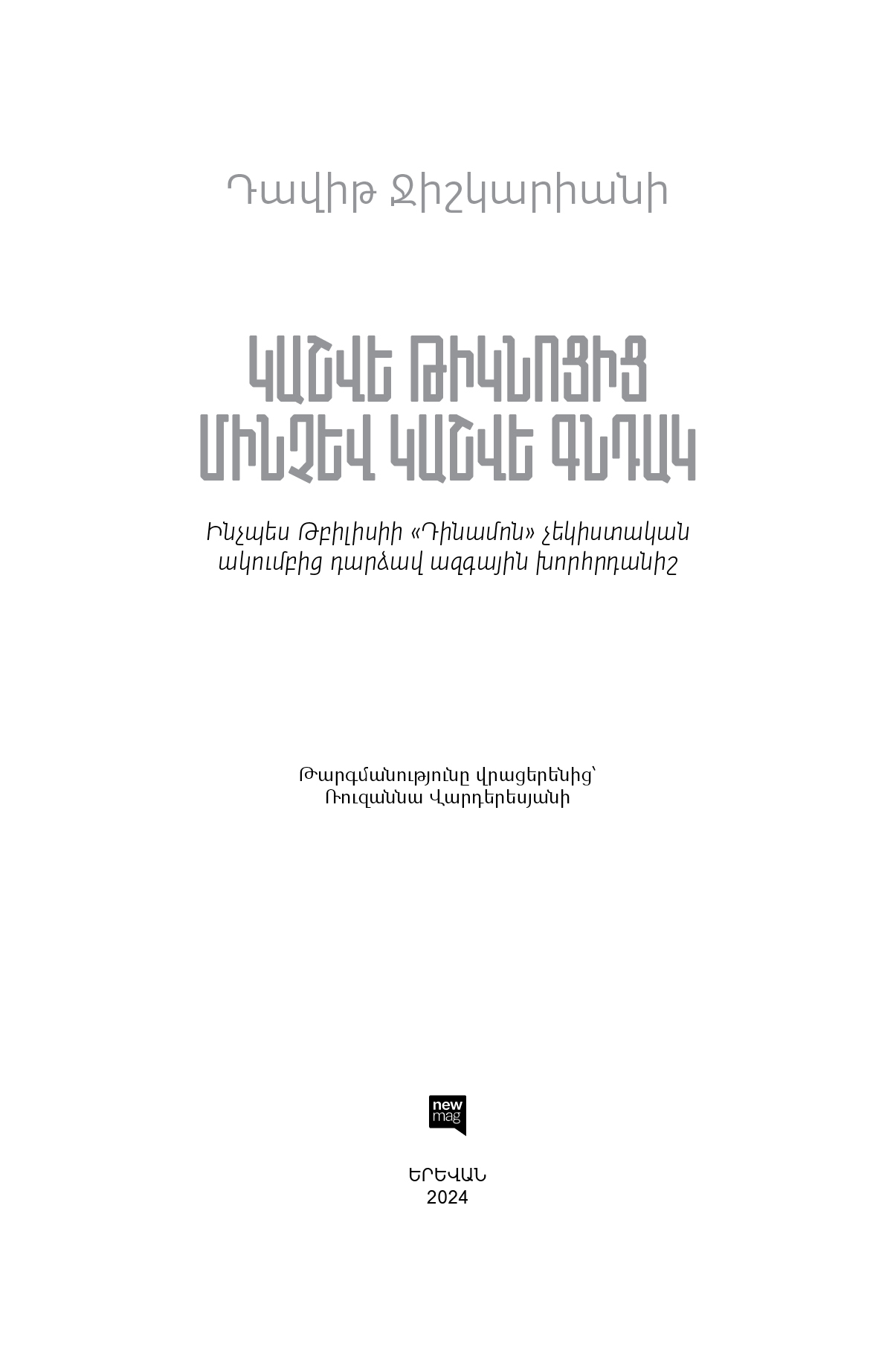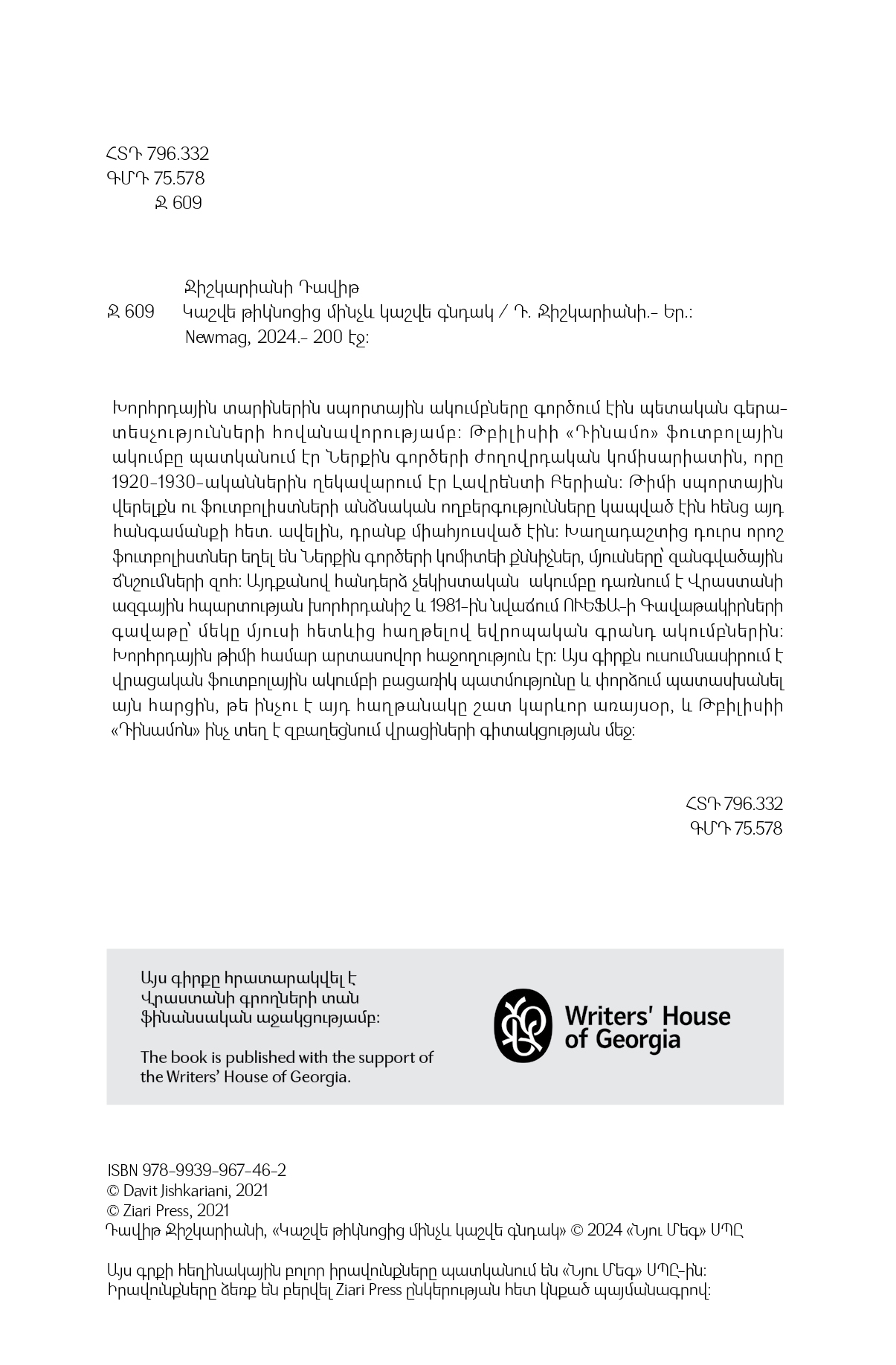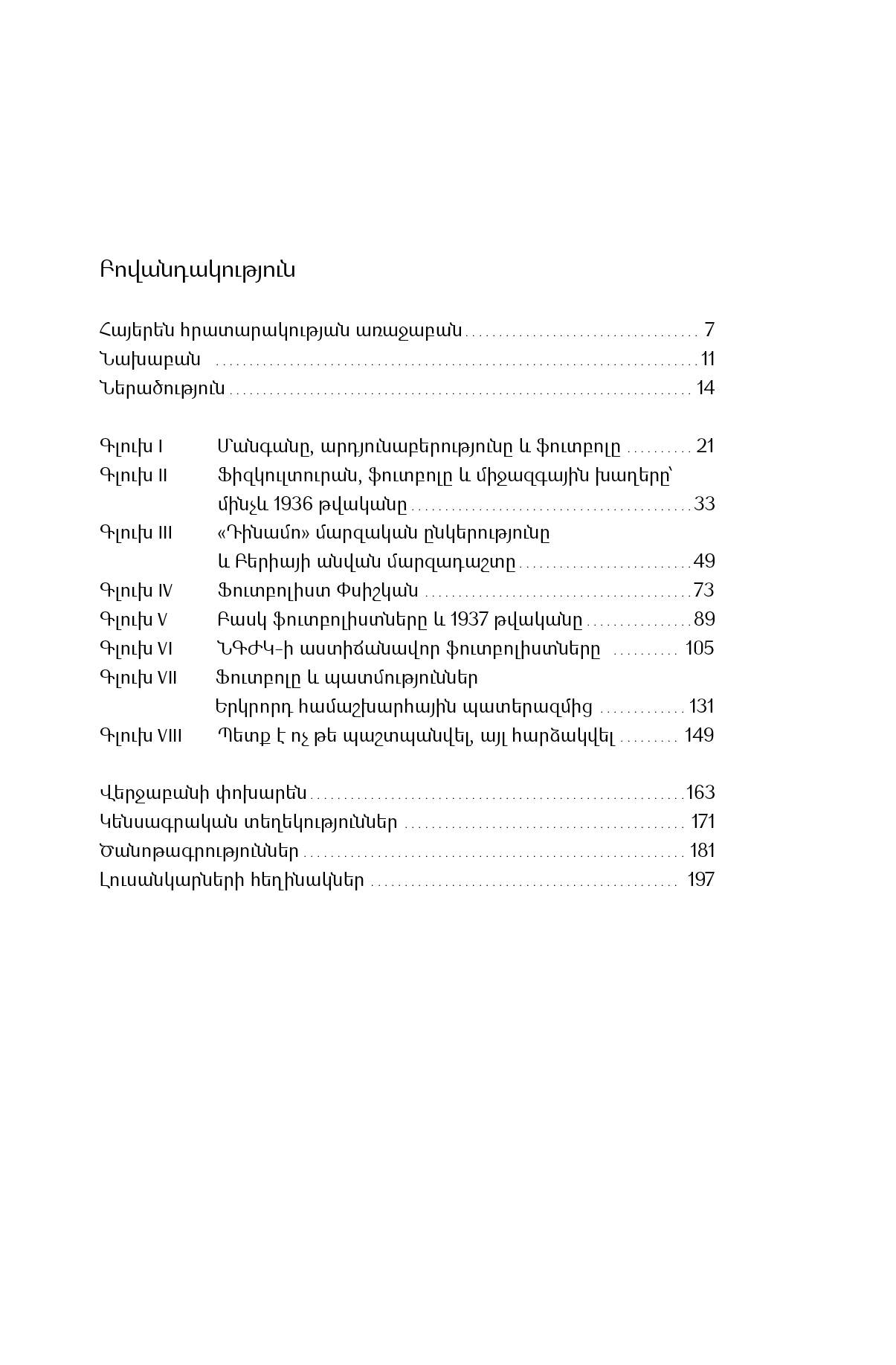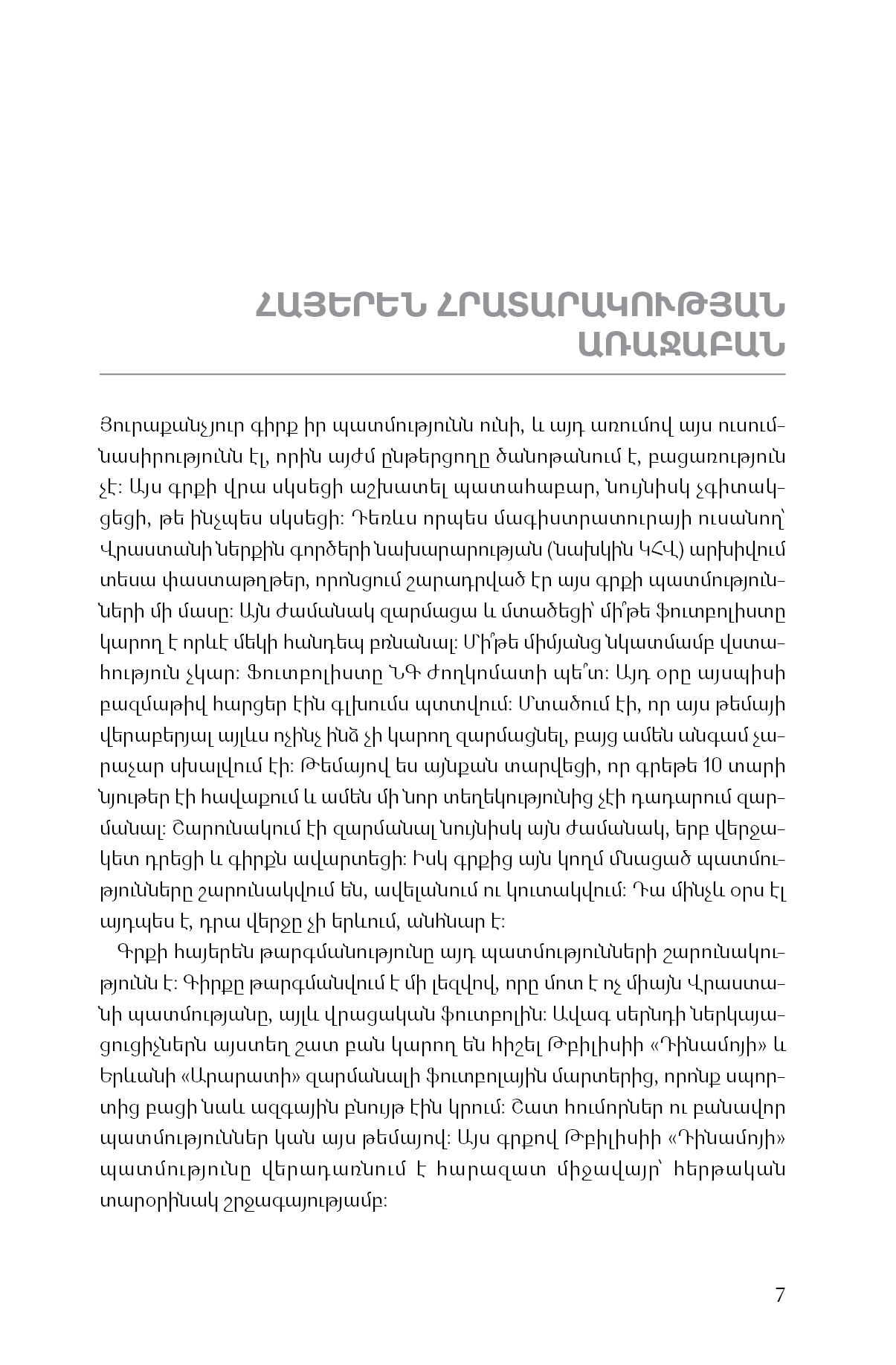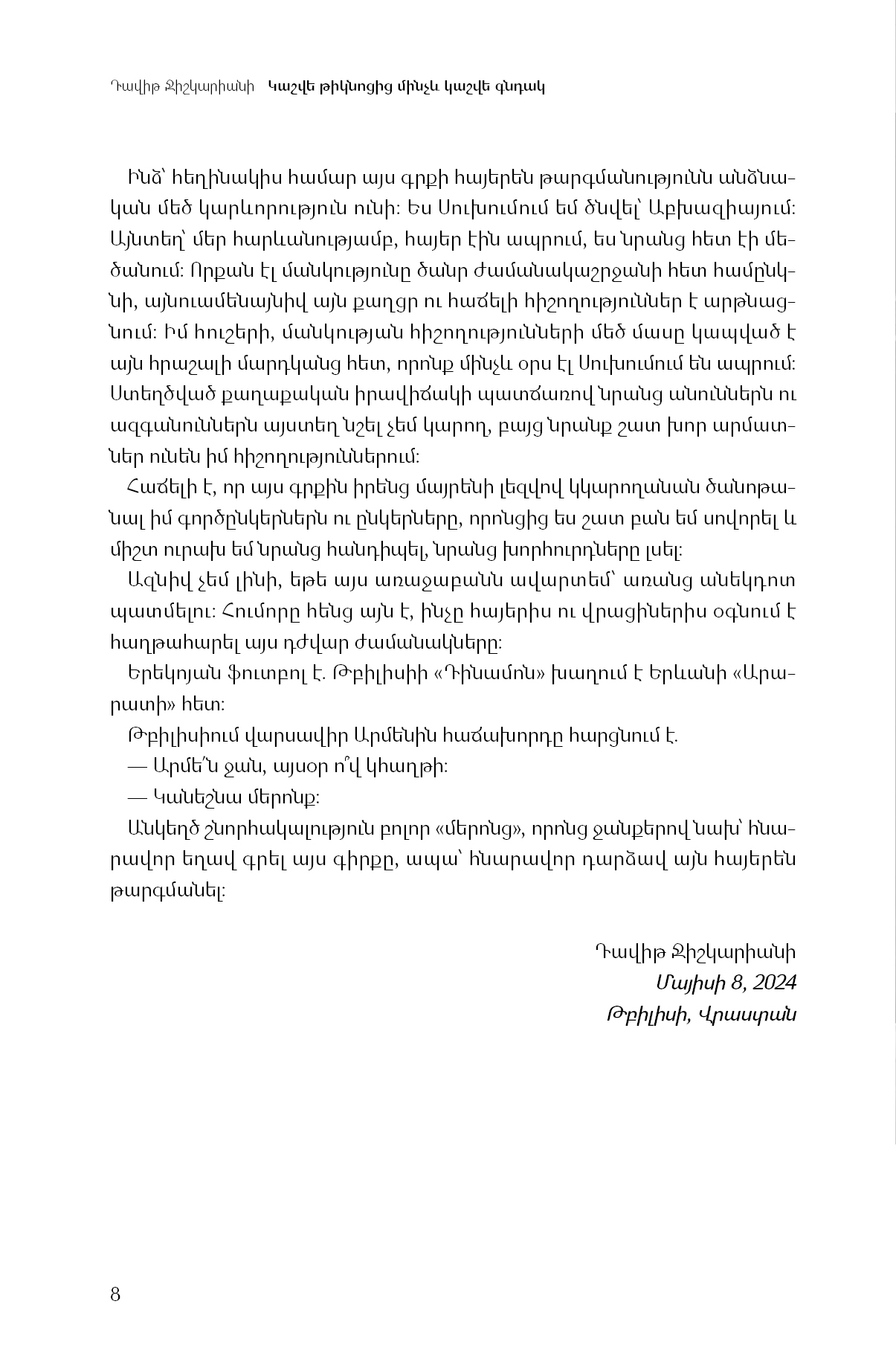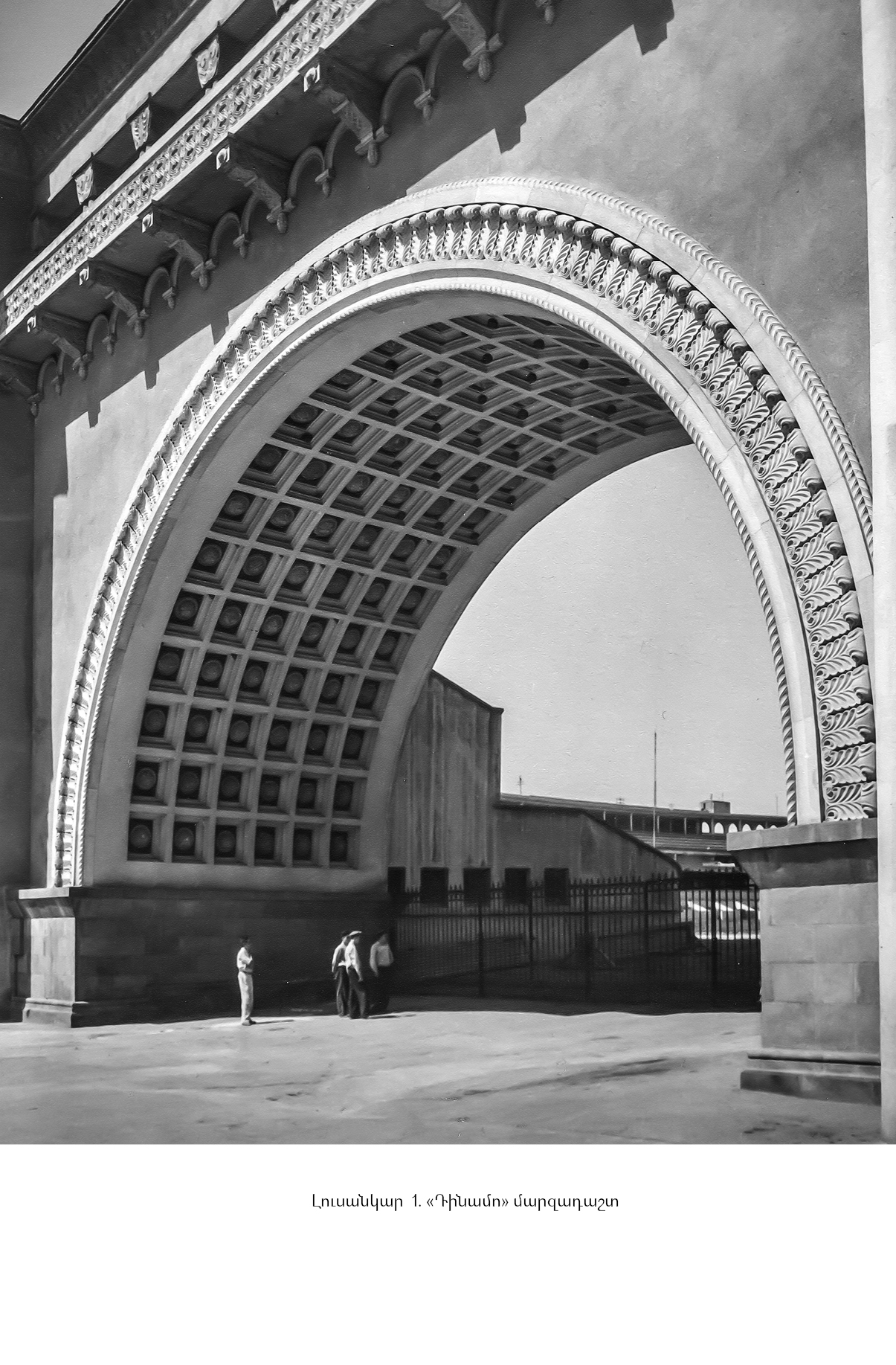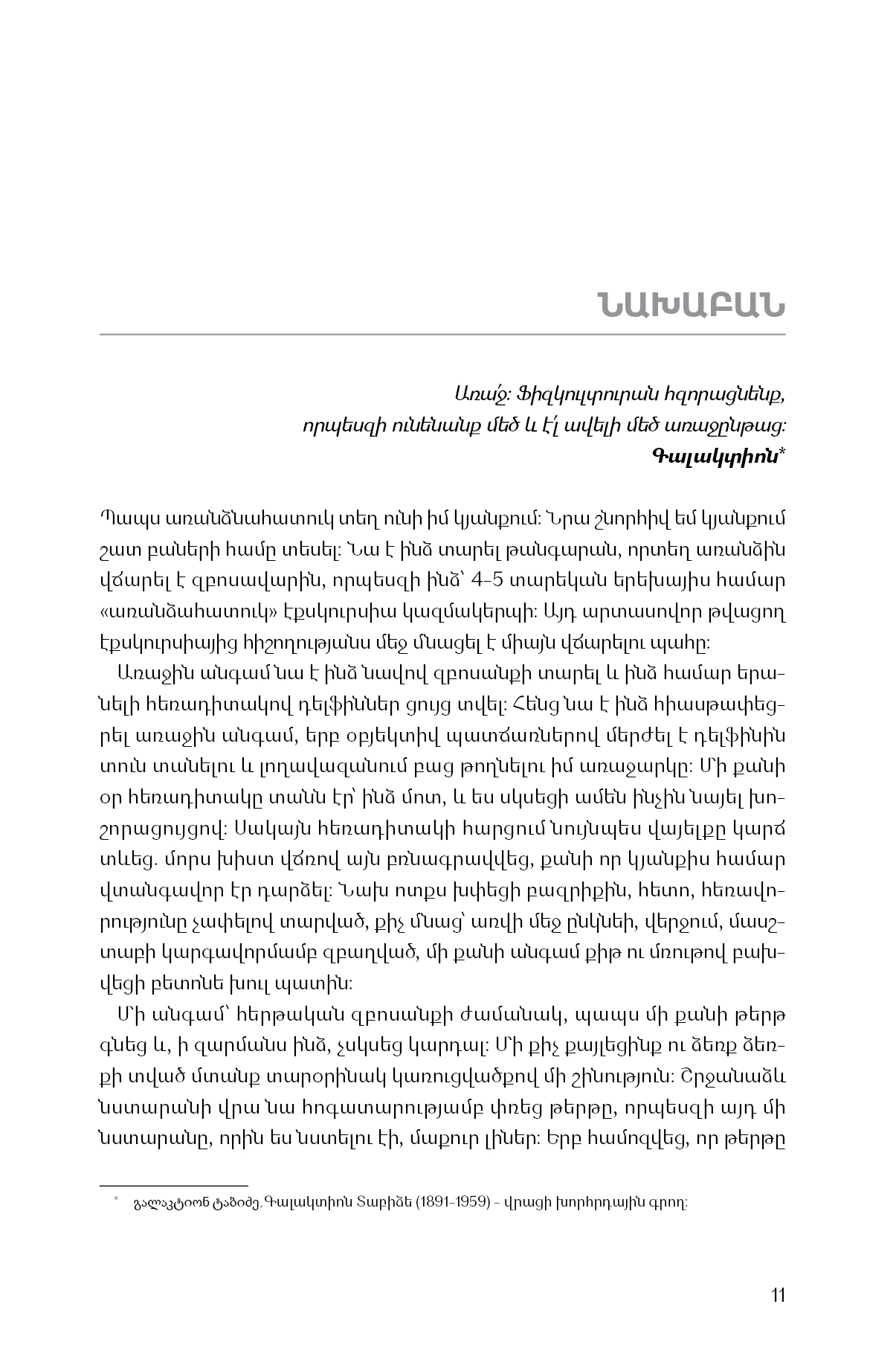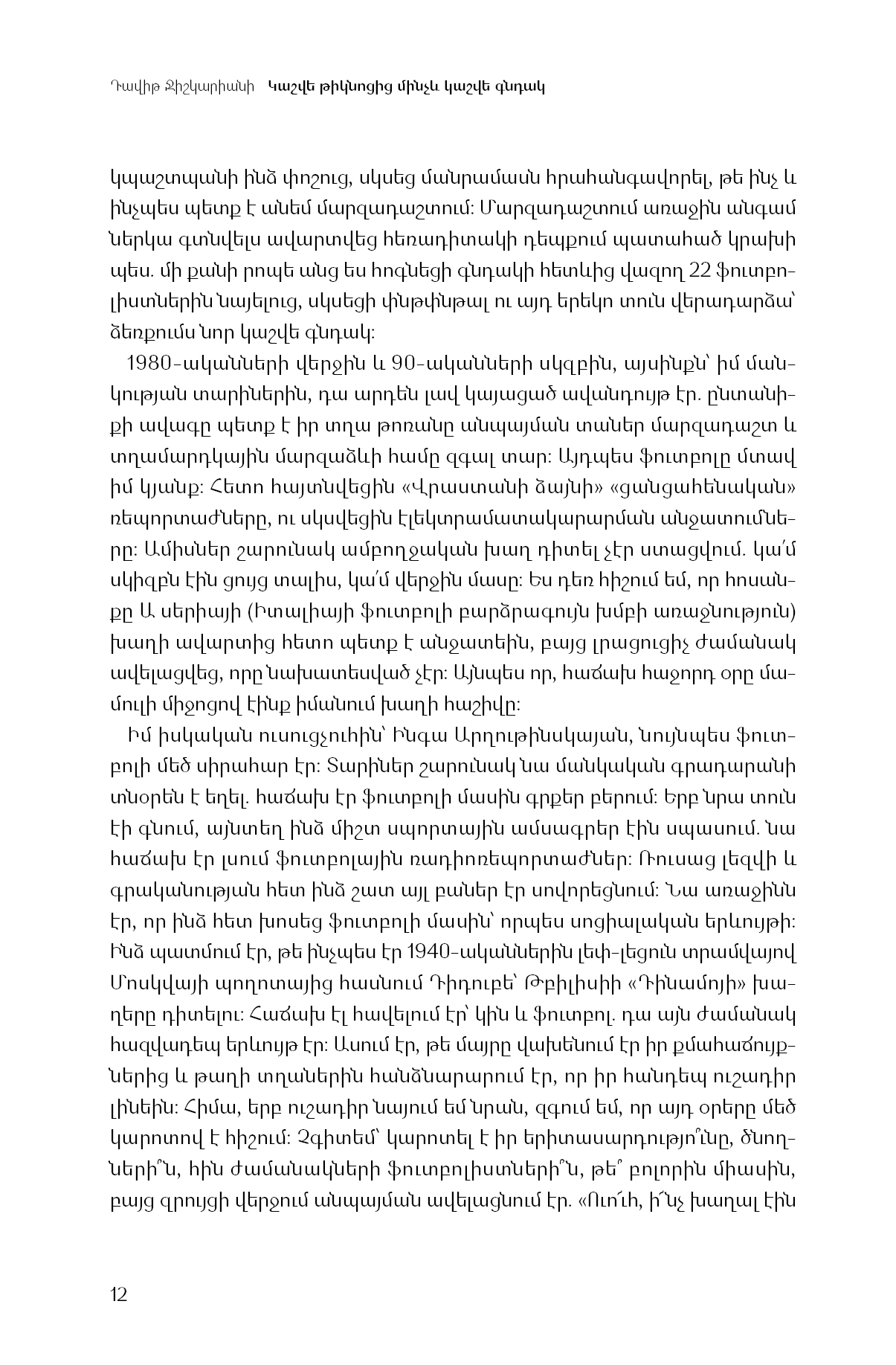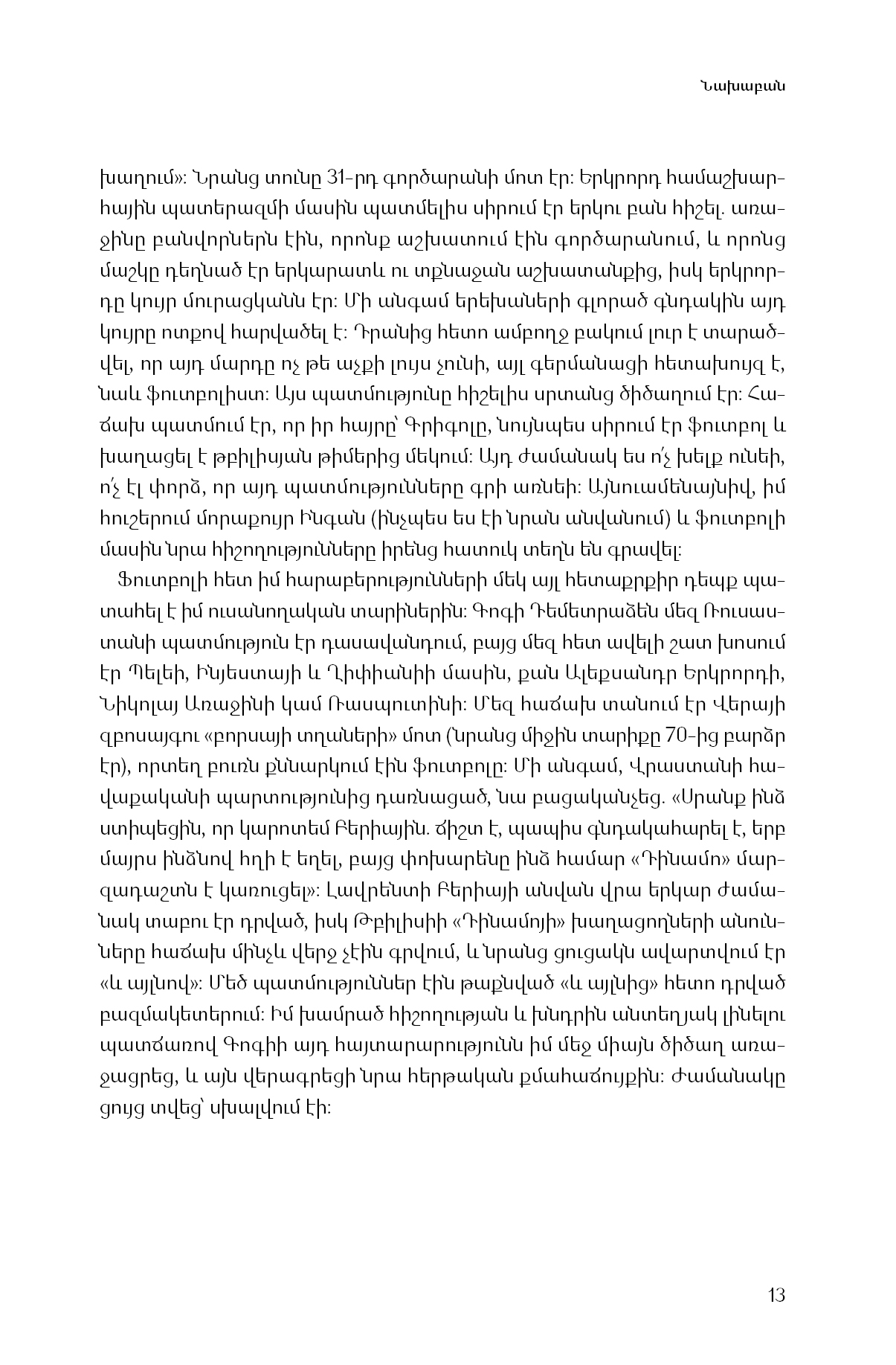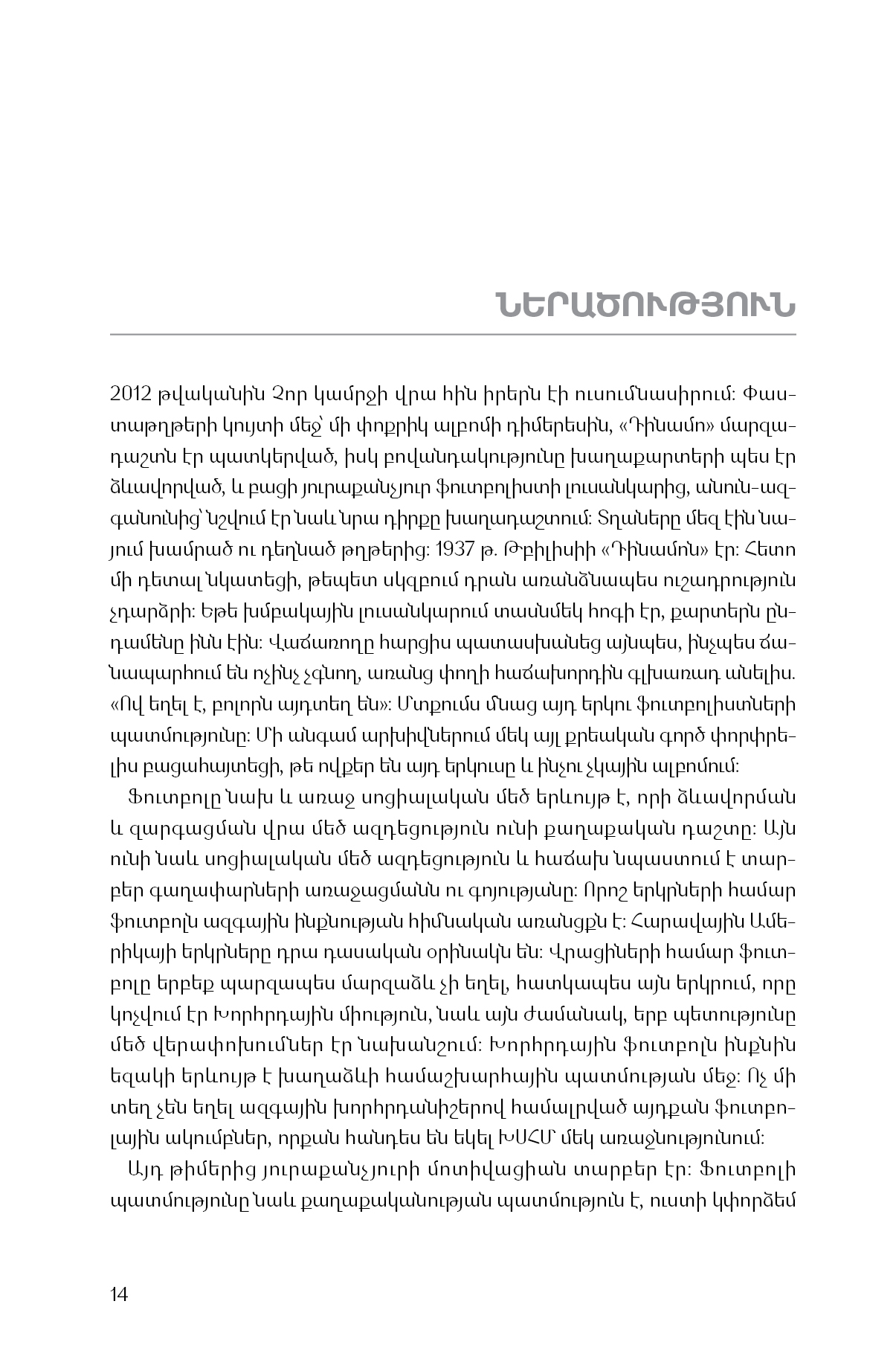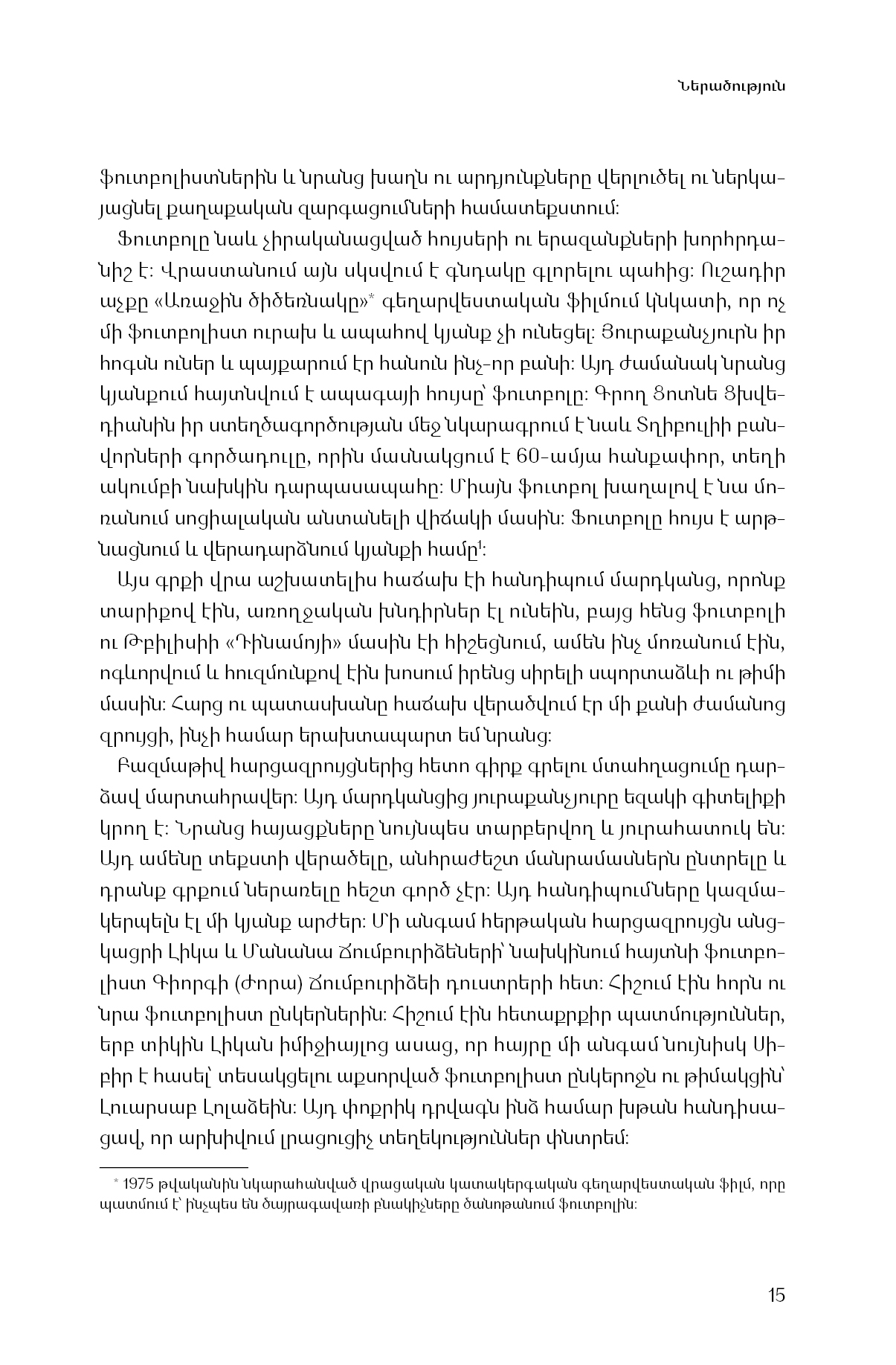In Soviet times, sports clubs operated under the patronage of state agencies. Tbilisi football club "Dinamo" belonged to the People's Commissariat of Internal Affairs, which was headed by Lavrenti Beria in the 1920s and 1930s.The sports rise of the team and the personal tragedies of the players were connected with that very circumstance.moreover, they were intertwined.Off the field, some footballers have been investigated by the Internal Affairs Committee, others have been victims of mass repression.
Despite that, the Chekist club became a symbol of Georgian national pride and won the UEFA Cup Winners' Cup in 1981, defeating one after another the big European clubs. It was an extraordinary success for the Soviet team. This book examines the unique history of the Georgian football club and tries to answer the question of why that victory is so important today, and what place Dinamo Tbilisi occupies in the minds of Georgians.







